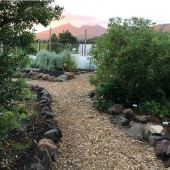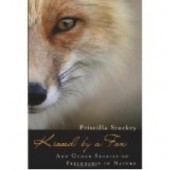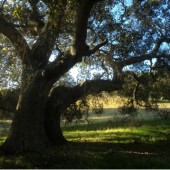
Abstract: Finding love and reciprocity in the garden during challenging times by growing community-based learning experiences.
Continue ReadingI’ve got maps spread out
all over the kitchen floor
headwaters splintering into deltas

Abstract: In Kissed by a Fox: And Other Stories of Friendship in Nature, Priscilla Stuckey, Ph.D. presents a collection of stories as an integrated whole. The purpose of this book review is to offer this work of creative non-fiction as an illuminating example of how love and relationships are essential ingredients for sustainability. Kissed by a Fox is fundamentally about relationships between humans and other-than-human beings. Love for the natural world and one’s self are consistently described throughout the book as necessary for taking in and giving out what will sustain us and the earth. Stuckey delivers this message through narrating her experiences with “friendships in nature” and how these relationships transformed her life.
Continue Reading
The ecological crisis is a crisis of relationship, and the way forward lies in building more reciprocity, respect, and love into human relationships with each other and with the rest of nature. What is needed is a great economy of give-and-take in which what each takes in is balanced by what each gives out. Nature provides the model for this reciprocity in the biological process of breathing in and breathing out. The rhythm of the breath, found in every life form as well as in every larger community in which living beings participate, provides a powerful model for human decisions and actions in every arena of life. By copying the rhythm of the breath, humans can learn from the wisdom of nature’s economy to revolutionize our relationships with one another and with the larger-than-human world. I discuss the economic model of the modern world and its devotion to linear increase and accumulation, or breathing in without limit, and how profoundly this pattern contradicts the reciprocal model of biological life. I offer historical examples of reciprocal economies among the Northwest Coast Indians in the potlatch ceremony and among ancient Israelites in the Year of Jubilee. I then offer examples of reciprocal practices that emphasize the breathing-out or giving-back half of the breath cycle and that can be practiced in daily life. I suggest that activities of any kind that engage people in giving back, such as showing appreciation, extending care, or pausing for meditation, contribute directly to sustainability because they address the giving-back half of the breath cycle, which is missing or underexplored in modern life.
Continue Reading